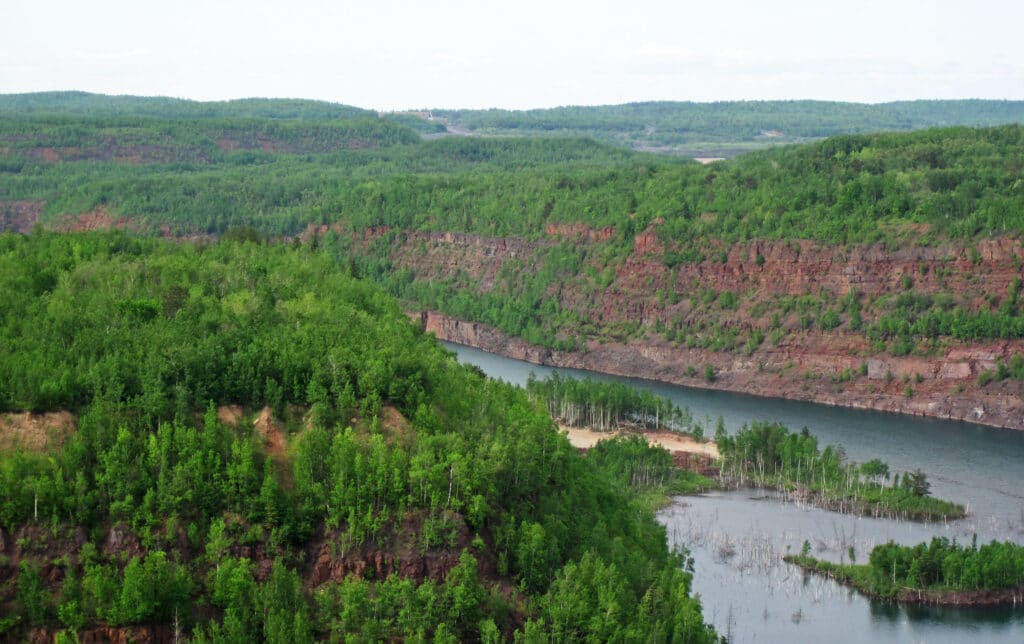
Regulators in Minnesota are proposing to modify how the state measures and manages contaminants in lakes and rivers. At least one environmental group is opposing the effort as a weakening of rules meant to prevent pollution — including from proposed copper-nickel mines in northeastern Minnesota.
The Minnesota Pollution Control Agency says the changes would get away from a “one-size-fits-all” strategy of water protection, while WaterLegacy claims it would put waterways in harm’s way.
“What Minnesota needs right now is a regulatory agency that will protect our waters and our ecological communities as a public good, not an MPCA constrained and directed by a few powerful dischargers,” wrote Paula Maccabee, advocacy director and legal counsel at WaterLegacy, in earlier comments. “MPCA should chart a new course to prioritize rulemaking that preserves outstanding waters and protects aquatic life and human health threatened by existing pollution in impaired waters.”
Proposed changes include eliminating numeric standards for pollutant levels in waterbodies where industrial facilities — from ethanol plants to mines — discharge waste water.
The standards govern contaminants like chlorides, hardness, bicarbonates, conductivity, and salinity, which can kill aquatic insects, fish, and amphibians, harm ecosystems; and threaten state species of concern. It could also hurt fish populations and human health. The changes would not specifically affect the standard for sulfate discharges, a key issue with mining, and a harmful pollutant for wild rice.
“In many cases, numeric standards are appropriate,” the MPCA says. “However, the diversity of water quality needs for industrial and irrigation use means that identifying protective numeric values for each potential pollutant necessary to protect various wide-ranging industrial and irrigation uses is unreasonable to complete on a statewide basis.”
Rather than the strict numeric standards, the new water quality rules would use a “narrative” description that would be applied to permits on a case-by-case basis, focused on site specific conditions. The MPCA would develop a “translator” tool, essentially a flow chart of questions to convert narrative standards to numeric.
The MPCA points out that many of the water quality standards were adopted in the 1960s. While they may have been based in science, the state has not tracked documentation, and thus can’t point to studies that support the standards.
Native American tribes downstream of mines and proposed mines, and which have legal rights to hunt, fish, and gather resources throughout much of northeastern Minnesota, say the current proposal is flawed.
“Upon review of the MPCA’s proposed rule revision, specifically the weakening or elimination of numeric criteria for conventional pollutants such as specific conductance, total dissolved solids, and sulfate, the Band can only conclude that these proposed revisions to state [Water Quality Standards] would not meet the purposes of the [Clean Water Act] or be protective of the waters of the state,” wrote Nancy Schuldt, Water Projects Coordinator, for the Fond du Lac Band of Lake Superior Chippewa.
The proposal is now in the hands of an administrative law judge, who will hold a public hearing next week, and ultimately decide if the rule changes are appropriate.
Take action
Testify at public hearing: Feb. 4, 2021, 2 p.m.
https://minnesota.webex.com
Meeting number: 146 933 0849
Meeting password: c3P7v3x36SG
Call: 1-415-655-0003
Provide online comments here. Deadline is Feb. 24, 2021.
More information:
- Amendments to Water Quality Standards: Use classifications 3 and 4 – Minnesota Pollution Control Agency
- Pollution Control Agency Notice of Hearing (Initial Comment Period) – Minnesota Office of Administrative Hearings
- Take action: Stop Deregulation of Minnesota Mining Pollution – WaterLegacy

